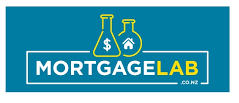CAPITAL GAINS TAX: RENTAL PROPERTY EFFECTS; STRATEGIES
Capital Gains Tax (if it happens): what will be the effects on rental properties? What strategies could be employed to minimise tax effects? Here is a high-level overview:
WHAT WILL BE TAXED?
Everything except your grandma.
No, not quite. All land except family home, shares, business assets and intangible property. Seems that cars, boats, jewellry, fine art, collectibles and other household durable items would also be excluded.
HOW MUCH TAX?
At present, it would be at the tax rate of who/whatever owns the asset i.e. if a person, and they are earning $70k/year, then 33c/$. However, the common view is that this will be watered down to something more like the Australian rate, which is a flat 15c/$.
That being said, the proposal is to extend the lowest tax threshold of 10.5c/$ from $14k/ year to $20k/year, which is $420/year extra. Break out the party poppers.
Note also, that the proposal includes allowing depreciation on buildings once again. The more things change the more they stay the same! It would also allow deductions for seismic strengthening, something more likely to help commercial property investors.
WHAT’S THE TIMEFRAME?
It isn’t going to be backdated, but seems that businesses will have up to five years to work out what the market value of the assets as at April 2021 was.
WHO WILL BE TAXED?
You’ll pay CGT on your worldwide assets if you* are tax resident in NZ, e.g., sell a rental property in Australia: CGT will be calculated in NZ. One would imagine however, that where there is a Double Tax Agreement (DTA), then that country has primary taxing rights, and NZ would recognise the CGT paid on that asset sale.
POTENTIAL ISSUES
- Getting lending will get harder i.e., the banks would likely only lend you the equity minus the tax. For example, if you have $100k equity, then the banks would lend you 66% (if a 33% CGT).
- If you have assets in countries which don’t have a DTA with NZ, then that could get expensive real quick, i.e., tax is paid on the sale in such a country, but NZ won’t recognise that.
- If you have foreign shares, and they are not currently subject to the Foreign Investment Fund (FIF) taxing regime, well, CGT will be imposed on them.
- The Portfolio Investment Entity (PIE) regime will be unwound so that those funds get caught by CGT
STRATEGIES
- Add value to your business or rental before “valuation day” e.g., are you going to make a capital improvement on your rental? Put on another room? Rip out the bathroom and put a new one in? Best to do that before valuation day, so as to minimise the capital gain.
- Cars, boats, jewellry, fine art, collectibles suddenly became better options for investment. Buy with caution though, as that car you bought might not increase if value if not cared for appropriately, if not the right model or year. And all those collectibles… well, they might go up. Might not. Expert advice will be required from specialists in those fields.
- As the family home won’t be taxed, consider adding value to your family home i.e. improvements that will increase equity. That will be CGT free+
- As of writing, the government is pondering the recommendations. There will likely be changes for multiple reasons, politics being one of them. So don’t panic. Watch this space and start thinking creatively. Engage with your accountant, financial advisor and mortgage advisor.
MORTGAGE LAB

We asked MortgageLab to give us their unique perspective as mortgage advisors. You’ll enjoy reading some useful insights and tips from Rupert Gough here.
FORSYTH BARR
Forsyth Barr make the following observations:
- Lower income groups will likely benefit from the proposed changes, but the effect is likely to be undesirable for middle to upper income groups.
- It seems that there will be more reluctance on the part of business owners to take risks/invest, as the rewards in terms of capital gains will now be taxed.
- Environmental taxes will be another cost for businesses, and therefore the average Joe who buys from businesses.
- The agricultural sector will likely be particularly hard hit by environmental taxes… which may also drive up the price of food and dairy.
For more insights and advice on your portfolio, go to
http://www.forsythbarr.co.nz/contact-us/form/register
* By “you” we mean the entity that owns the asset
+ Note that if you use part of your family home for Airbnb or want to claim home office costs or if the home is bigger than 4500 m2, then CGT would apply. See this link for more info.
Reference to comments by Mortgage Lab and Forsyth Barr is done with kind permission of each party. This does not constitute an endorsement of Epsomtax.com Limited. All rights belong to their respective owners.
Pages
Useful Links
Services
Contact Details
Phone: 0800-890-132
Email: support@epsomtax.com
Fax: +64 28-255-08279
EpsomTax.com © 2021
